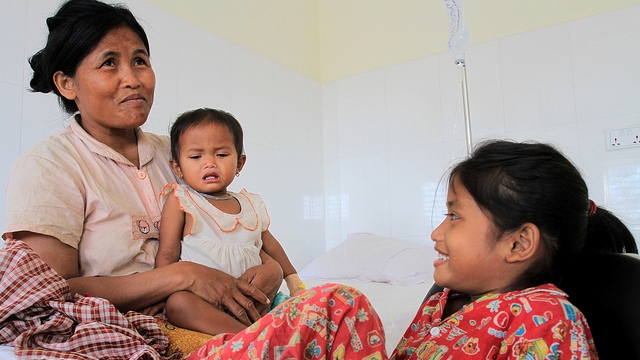During the first day of the event, speakers presented their research, followed in the course of the second day by brief discussions around future directions for research in this area. A brief synopsis of each session is provided in the text below:
A Systematic Review of Strategies to Improve Health Care Provider Performance in Low and Middle Income Countries
Providers play an essential role in the delivery of care, but their performance is often inadequate. This session summarized a systematic review of 829 studies published before 2007 about the effectiveness of strategies designed to improve provider performance with the goal of providing evidence-based guidance on how health system investments can improve performance.
Quality of Care Measurement in Health Pay-for-Performance Pilot Programs
In recent years, there has been a marked increase in health system pilot programs that include a pay-for-performance dimension implemented at a primary clinic level. This session reviewed how quality of care is measured and incentivized through a Balanced Scorecard approach and provided examples of quality of care measurement instruments (e.g. video vignettes, simulations of pregnancy complications) by using two evaluations conducted in Burkina Faso and Kyrgyzstan.
Quality of Drugs in Low-Income Countries
The proliferation of sub-standard pharmaceutical products and the overuse of antibiotics are significant global health challenges today. Two research papers were presented. The first looked at the quality of drugs manufactured in India but marketed globally, while the second looked at the rise of antimicrobial resistance and its association with out-of-pocket payments. Both papers suggest an increasing role for country and global regulation and diligence around the trade of pharmaceutical products and their use in patient populations.
Quality of Primary Care
Since the Alma-Ata declaration of 1978, countries have widely expanded access to primary care. Yet, even as access has expanded, the quality of primary care remains a significant challenge. Part of the problem is that measuring quality in primary care is difficult. Traditionally, measures of quality have been restricted to measures of infrastructure and the availability of drugs, but it is increasingly recognized that such measures are very weak proxies for the quality of the interaction between the health care provider and the patient. The papers in this session used novel quality of care measurements in India, China, Nigeria, Tanzania and Cambodia, presented new evidence on patterns of practice-quality variation and conducted experiments to improve the quality of care.
